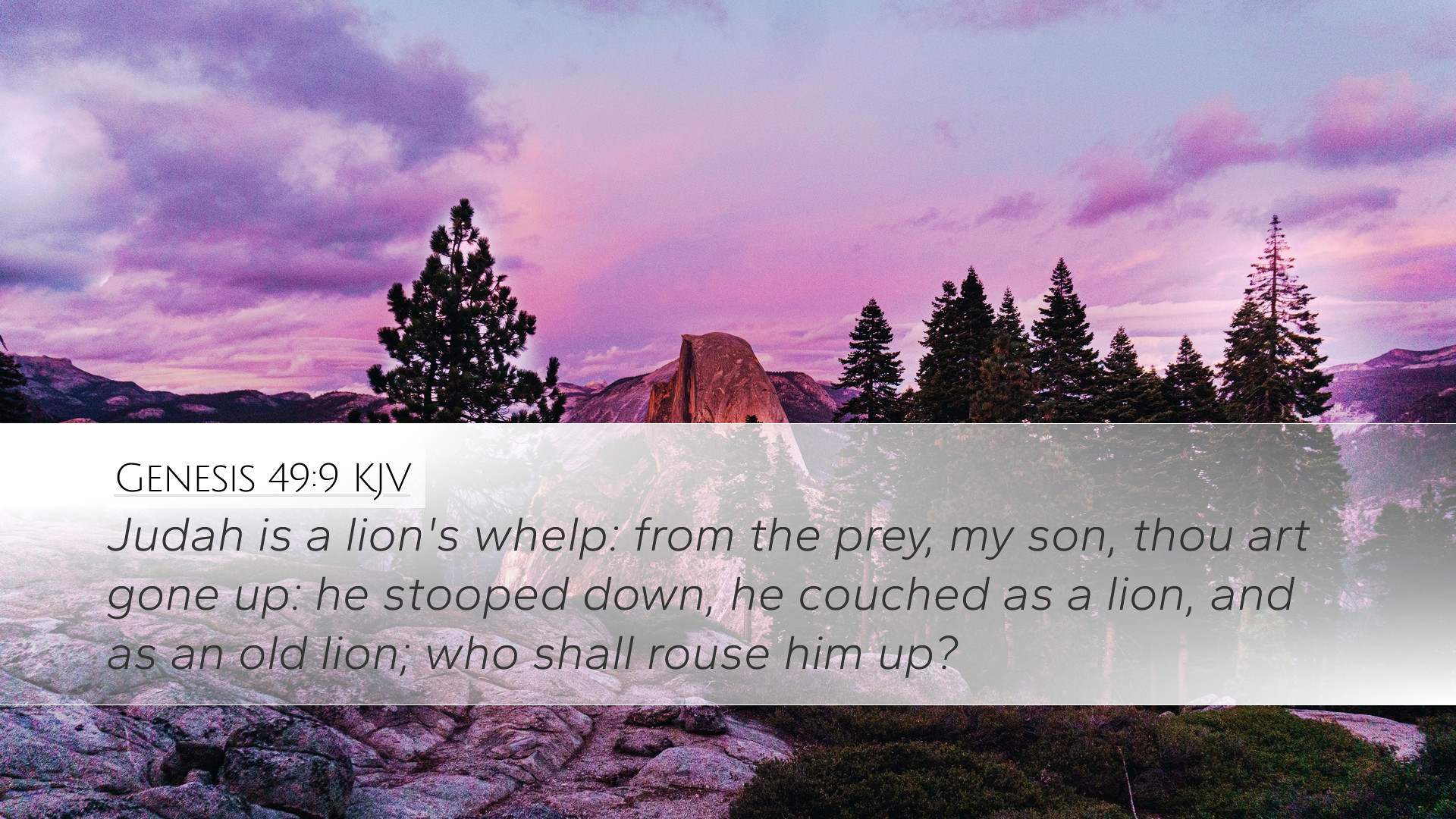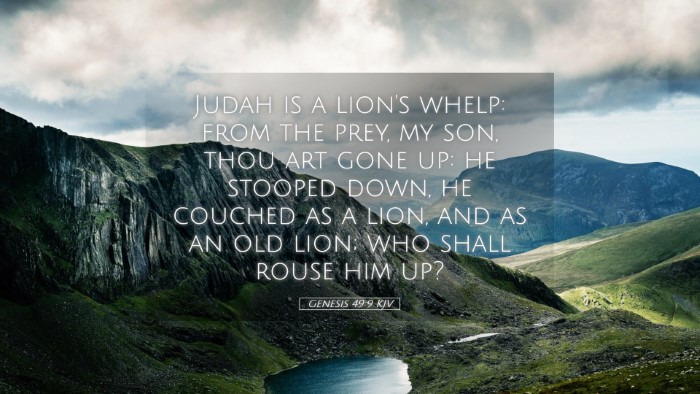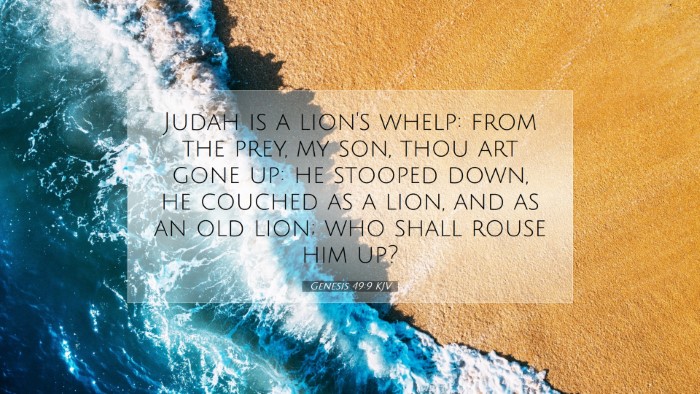Bible Commentary on Genesis 49:9
Verse: "Judah is a lion's whelp: from the prey, my son, thou art gone up: he stooped down, he couched as a lion, and as an old lion; who shall rouse him up?" (Genesis 49:9)
Introduction
This verse is part of Jacob's prophetic blessings over his sons and serves to highlight the significance of Judah in both the immediate context of the Israelite tribes and the broader narrative of Scripture. Commentators throughout history have noted the dual implications of Judah's blessing: both his historical role and the prophetic revelation concerning the Messiah.
Analysis of the Text
1. Symbolism of the Lion
Judah is symbolically represented as a lion, which is a powerful and regal image. Matthew Henry notes that the lion is "the strongest of beasts," suggesting that Judah will possess strength and leadership over his brothers. The comparison to a lion's whelp indicates youth and potential vigor, which symbolizes Judah's future prominence among the tribes of Israel.
2. The Progression of Judah's Power
Albert Barnes elaborates on the phrase "from the prey, my son, thou art gone up." This indicates not only victories in battle but also a metaphorical rise in power and status. The imagery of rising and stooping down reflects Judah's conquering nature and his eventual role as a stabilizing force among the tribes.
3. The Stance of the Old Lion
The latter part of the verse expresses a tension between strength and lethargy: "he stooped down, he couched as a lion, and as an old lion." Adam Clarke underscores the dual meaning, suggesting that while Judah may grow old, his strength remains. The phrase raises questions of authority and respect; the old lion, though still formidable, may invoke hesitance in those who dare to challenge his authority.
Prophetic Implications
This verse has profound messianic implications. It is through Judah that the royal line of David—and, by extension, the Messiah—would arise. The lion imagery not only establishes authority but also conveys a deeper typology relating to Christ as the Lion of the Tribe of Judah.
Messianic Interpretation
1. Christ as the Lion of Judah
The New Testament describes Jesus explicitly as "the Lion of the tribe of Judah" (Revelation 5:5), embodying both the kingship and the sacrificial nature of Judah's lineage. This connection is emphasized by Matthew Henry, who states that this lineage signifies Christ's ultimate reign over not just Israel but the entire world.
2. The Royal Lineage
Jacob's declaration positions Judah as the leading tribe, setting the stage for the monarchy established in Israel. This notion is pivotal in understanding God’s redemptive plan as unfolding through the historical journey of the Israelites, leading to the coming of Christ.
Theological Reflections
1. Leadership and Responsibilities
The portrayal of Judah can serve as a reminder of the responsibilities that come with leadership. Pastors and theologians may reflect on how power should be wielded with humility and faithfulness. The lion's nature is both to protect and to confront, which can be paralleled with divine leadership.
2. Strength In Vulnerability
The juxtaposition of might and the old lion's potential lethargy provides a poignant illustration of how God's people—called to be strong—must remain vigilant to not succumb to spiritual fatigue. Clarke suggests that even as leaders grow older and may not have the same vigor, their role remains vital in shepherding the next generation.
Application for Today’s Church
In light of Judah's example, today's church can draw several lessons:
- The Importance of Unity: Just as Judah is a leader among his brothers, the church must strive for unity and collaboration among its members, recognizing the diverse roles each has to play.
- Enduring Strength: While ministry may present challenges that appear daunting, believers can be assured of their strength through Christ, our Lion of Judah, who gives us perseverance in various trials.
- Legacy and Influence: Leaders within the church should be mindful of their influence on future generations and take responsibility seriously, ensuring that their lives reflect the values of the Kingdom.
Conclusion
Genesis 49:9 serves as a rich tapestry of historical narrative and prophetic revelation. It denotes not only Judah's role within Israel but also foreshadows the coming of Jesus Christ—the Lion of the Tribe of Judah—who fulfills God’s covenant promises. Through careful reflection on this verse, believers can glean insights for both personal growth and corporate life within the church.


